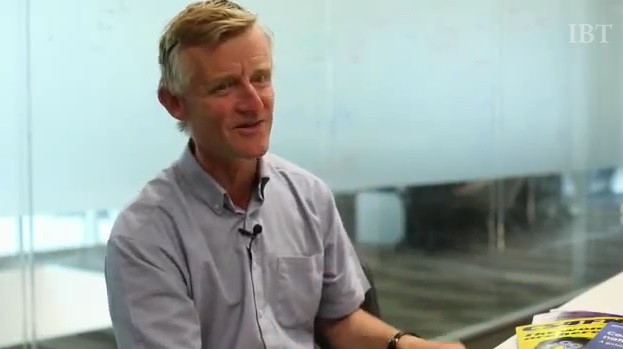Coding in the Classroom: Schools Across England Introduce Coding to the Curriculum

Coding is to be taught in primary and secondary schools across England to children between the ages of five and 16 from today as part of a major overhaul of the national curriculum.
Teaching of the discipline forms part of the new Computing programmes of study, which aim to equip children with "computational thinking and creativity to understand and change the world". This is hoped to be achieved through teaching the principles of computer science and how to put this knowledge to use through programming - or coding.
Some have called this move long overdue, while others have criticised it as an elaborate publicity stunt designed to artificially boost the UK's tech credentials. Whatever the case, it is set to be the biggest change to the curriculum since Information and Communication Technology (ICT) was first introduced in 2000.
Michael Gove, Conservative MP and former Secretary of State for Education, previously described ICT in UK schools as "harmful and dull", focussing as it did on the use and application of computers primarily through Microsoft Office software like Word and Excel.
"The new computing curriculum still includes some material on the use and application of computers but now there's a major new strand which is computer science," Simon Peyton Jones, principal researcher at Microsoft Research and chair of the Computing at School (CAS) group, told IBTimes UK.
"Computer science is the foundational subject discipline that underlies computers and computing and programming - which you should think of as a subject discipline in the same way that you think of maths or physics - that will last students their whole lives and will inform them about the technology that they're using."
'Not vocationally driven'
It is estimated that over the next 10 years there will be 1.4 million jobs in computer sciences and only around 400,000 graduates qualified to do them. Despite this however, Peyton Jones claims that the changes to the curriculum are not motivated solely by these shortcomings.

The aim is to transform children from consumers of technology into developers, equipped with an understanding of how the apps they use and the websites they visit actually work.
"This is very much not vocationally driven," Peyton Jones said. "It's not motivated primarily by saying there's a skill shortage in this country and we need to have more people who can programme. It's motivated instead by saying: 'What sort of education do our children need?'
"We teach every child science and english, even though they're not going to become english dons or scientists. But we want them to know some science, because we want them to know something about the world that surrounds them. In the same way we want them to know some of the elementary principles of computer science."
Lottie Dexter, the former director of the Year of Code initiative, described the importance of coding as equivalent to that of reading, writing and arithmetic, saying it should now be considered as three R's and a C.
Teachers 'under-equipped and under-supported'
The changes have meant that 16,300 ICT teachers in secondary schools and 160,000 primary school teachers have needed to get up to speed in what is a relatively short amount of time.
"The immediate, proximate challenge is that we have 3,500 secondary schools and 17,000 primary schools, each with multiple teachers, all of whom are saying: 'You are asking us to do something that is entirely new'," Peyton Jones said.
"I believe that teachers see this as a good direction to move in but they feel themselves to be under-equipped and under-supported."
One Bristol-based primary school teacher who requested not to be named said that the introduction of the new curriculum felt rushed.
"There is not enough support for teachers from the government," he told IBTimes UK. "Many of the teachers I work with didn't even find out about the changes to the curriculum and their implications until quite late. In February it still wasn't clear what was going on."
Donald Clark, former Epic Group CEO and a self-described "evangelist for the use of technology in learning", has also criticised the government's inadequate training plans.
"I'm not at all convinced that we have enough teachers with the coding and relevant teaching ability in our schools", Clark wrote in a blogpost that also questioned the effectiveness of teaching coding to young children.
"Meaningful coding requires computational thinking and a grasp of maths and logic," Clark said. "Far from shoving this down the throat of five-year-olds, we should be leaving this until they are ready to cope.
"Otherwise it will be an exercise in counter productive education, where more are 'turned off than on' by the experience."
© Copyright IBTimes 2025. All rights reserved.






















